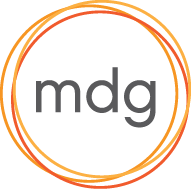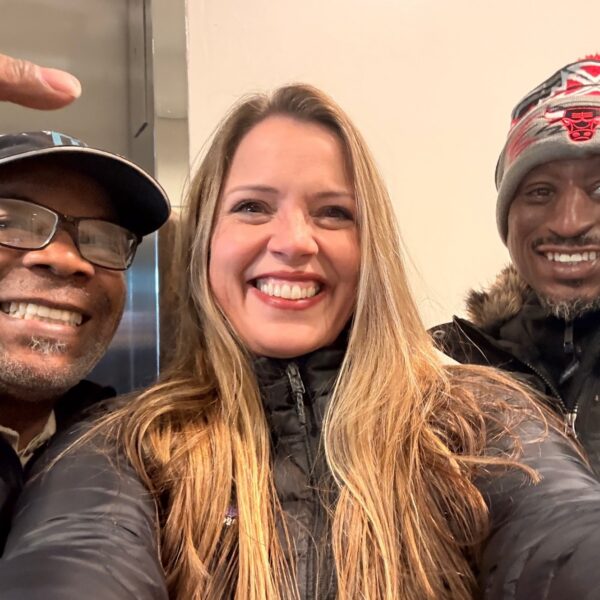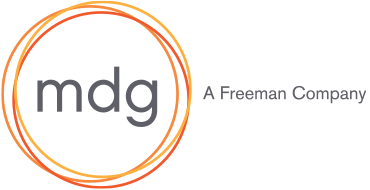
The New Era of Marketing – Infinity Loop Marketing
The Evolution Beyond Traditional Sales Funnels
In today’s digital era, the conventional sales funnel is becoming an outdated concept. Customers no longer follow a linear path from awareness to purchase. Instead, their journeys are dynamic, multifaceted ecosystems of continuous engagement.
This fundamental shift has given rise to a new strategy: Infinity Loop Marketing compared to the Traditional Marketing Funnel (pictured below).

This transformative approach redefines how brands interact with customers by prioritizing integrated, ongoing touch points that foster long-lasting relationships, not merely one-time transactions.
By creating a seamless, interconnected brand experience at every stage, Infinity Loop Marketing elevates customers into loyal advocates, driving sustained growth.
Infinity Loop Marketing Foundational Principles
1. Continuous Engagement
Unlike the linear sales funnel, Infinity Loop Marketing emphasizes ongoing engagement with customers beyond the initial sale. This continuous interaction nurtures loyalty and advocacy, converting customers into long-term brand enthusiasts.
2. Customer-Centric Approach
At the heart of Infinity Loop Marketing is the customer. Understanding and prioritizing their experiences and needs helps brands forge deeper connections and foster lasting loyalty.
3. Feedback Integration
Infinity Loop Marketing thrives on feedback loops, valuing customer input for continuous improvement. Brands actively gather and utilize feedback to refine products, services and experiences.
4. Omni-Channel Presence
Recognizing the multifaceted nature of customer interactions, Infinity Loop Marketing underscores seamless integration across all touch points, digital or physical. Consistency across channels is paramount.
5. Personalization and Customization
Tailoring experiences to individual preferences is crucial to Infinity Loop Marketing’s success. Leveraging data and technology, brands can deliver personalized offerings and communications.
6. Lifetime Value Optimization
Instead of focusing solely on initial transactions, Infinity Loop Marketing aims to maximize the long-term value of each customer through nurturing relationships.
7. Content as a Driver
Content marketing is pivotal to Infinity Loop Marketing. Brands create and share compelling content that engages customers at every stage of their journey.
8. Community Building
Cultivating a sense of community around the brand is essential, establishing platforms where customers can connect and deepen their engagement.
9. Agility and Adaptability
Embracing change is inherent to the Infinity Loop mindset. Brands must remain agile, responding promptly to shifts in audience behavior and market dynamics.
10. Measurement and Analytics
Beyond traditional metrics, Infinity Loop Marketing encompasses metrics related to engagement, satisfaction, advocacy and lifetime value for continual optimization.
By embracing these interwoven principles, brands move away from transactional thinking to cultivate enduring customer relationships rooted in mutual value exchange and loyalty.
The Transformative Power of AI Integration
While the underlying concepts of Infinity Loop Marketing are powerful on their own, artificial intelligence (AI) acts as a multiplier, exponentially amplifying the execution of this customer-centric approach and unlocking new frontiers in experience and loyalty.
Hyper-Personalization with AI
One of AI’s greatest strengths is its ability to analyze vast amounts of data and identify intricate patterns that would be virtually impossible for humans to discern.
By leveraging machine learning algorithms, brands can deliver hyper-personalized experiences tailored to each customer’s unique preferences, behaviors and needs.
From product recommendations and customized marketing messages to dynamically adapted user interfaces, AI ensures that every interaction is highly relevant and engaging.
This level of personalization fosters a deeper sense of connection, driving increased satisfaction, loyalty and lifetime value.
24/7 Engagement with Conversational AI
Maintaining continuous engagement is crucial in Infinity Loop Marketing, and AI-powered chatbots and virtual assistants make this possible at an unprecedented scale. These intelligent conversational agents can provide instant responses, support and guidance to customers around the clock, ensuring they always feel connected to the brand.
As natural language processing (NLP) and conversational AI continue to evolve, these interactions will become increasingly human-like, further enhancing the customer experience and strengthening brand relationships.
Real-Time Feedback and Adaptation
In the Infinity Loop paradigm, feedback integration is essential for continuous improvement. AI-driven sentiment analysis tools can process customer feedback from various sources, including social media, reviews and direct interactions, in real time.
This allows brands to quickly identify areas for improvement and adapt their strategies to meet customer expectations more effectively.
Moreover, AI can analyze cross-channel data to understand how customers move between online and offline environments, optimizing each touchpoint for maximum impact and delivering a truly seamless, omni-channel experience.
Dynamic Content Creation at Scale
Content marketing is a driving force behind Infinity Loop Marketing, but creating personalized, engaging content at scale can be a daunting task.
AI algorithms can generate customized content, from product descriptions and marketing copy to entire articles and videos, tailored to each customer’s preferences and interests.
Predictive Lifetime Value Optimization
By analyzing vast troves of customer data, AI can identify high-value customers and predict their future behaviors with remarkable accuracy. This insight allows brands to focus their efforts on nurturing these crucial relationships, crafting targeted retention strategies that maximize lifetime value.
Predictive analytics powered by AI will also enable brands to anticipate customer needs and pain points, proactively addressing them before issues arise, a key factor in building unwavering loyalty and advocacy.
Intelligent Community Cultivation
Vibrant online communities are essential for fostering brand advocacy and engagement in the Infinity Loop model.
AI can analyze social networks, forums and other digital spaces to identify key influencers, emerging trends and customer sentiments.
Armed with these insights, brands can strategically nurture and cultivate thriving communities around their products and services, strengthening emotional connections and driving organic growth through authentic customer-to-customer interactions.
Continuous Agility and Optimization
In the rapidly evolving business landscape, agility is paramount. AI continuously monitors market trends, customer behaviors and competitive actions, providing real-time intelligence that allows brands to adapt swiftly.
Moreover, AI-enhanced analytics provide deeper insights into customer engagement, satisfaction and advocacy metrics, enabling data-driven decisions for continuous optimization.
This powerful combination of agility and advanced measurement ensures that Infinity Loop Marketing strategies remain effective and impactful.
Embracing the Future of Customer Engagement
As AI technology continues its exponential advancement, its synergy with Infinity Loop Marketing principles will only deepen.
Brands that embrace this powerful union will be well-positioned to create unparalleled customer experiences, forging meaningful, lasting relationships that drive sustained growth and success.
In an era where customer expectations are constantly evolving, the integration of AI into Infinity Loop Marketing represents the future of customer engagement, a future where brands and customers are seamlessly connected in an endless loop of value creation, personalization and mutual benefit.
For marketing leaders and innovators, the time is now to harness the transformative potential of AI and redefine the boundaries of what’s possible in building enduring customer loyalty and advocacy.






